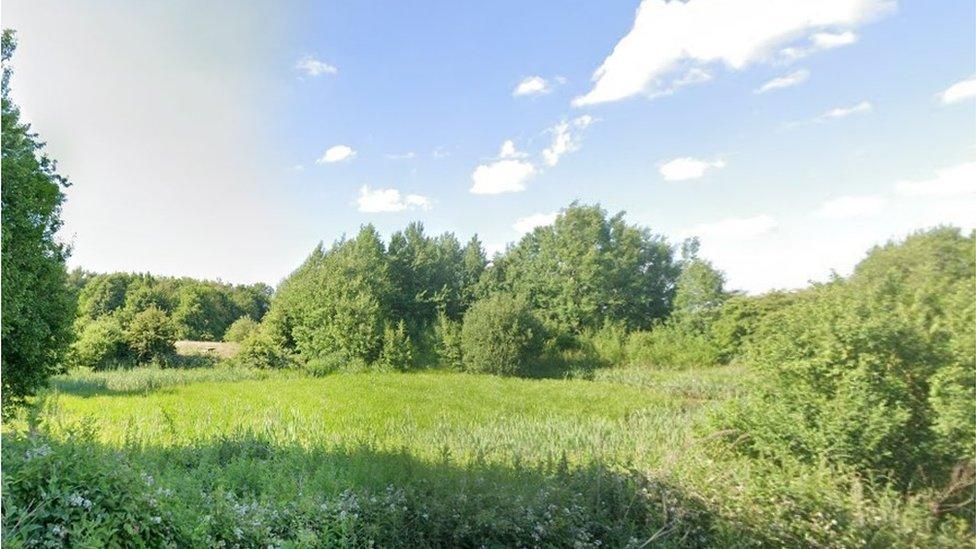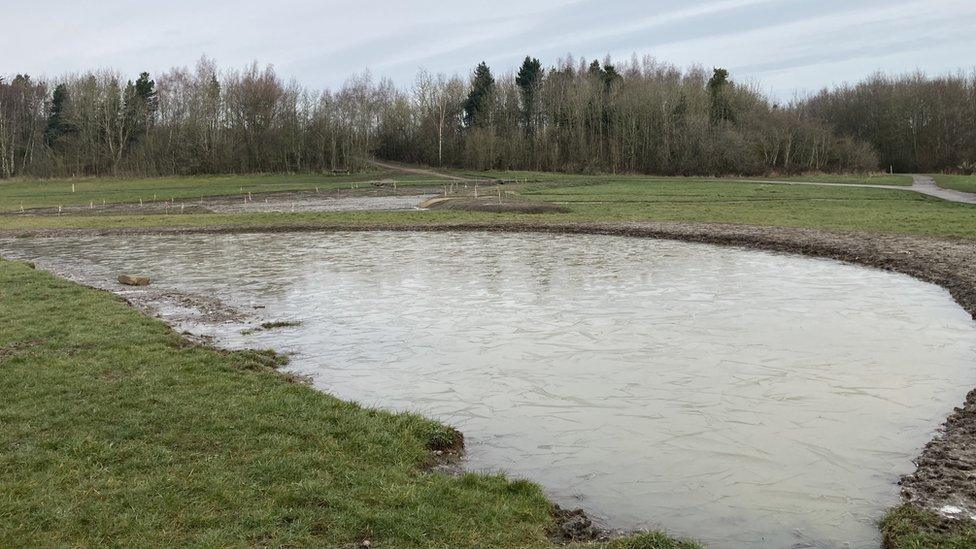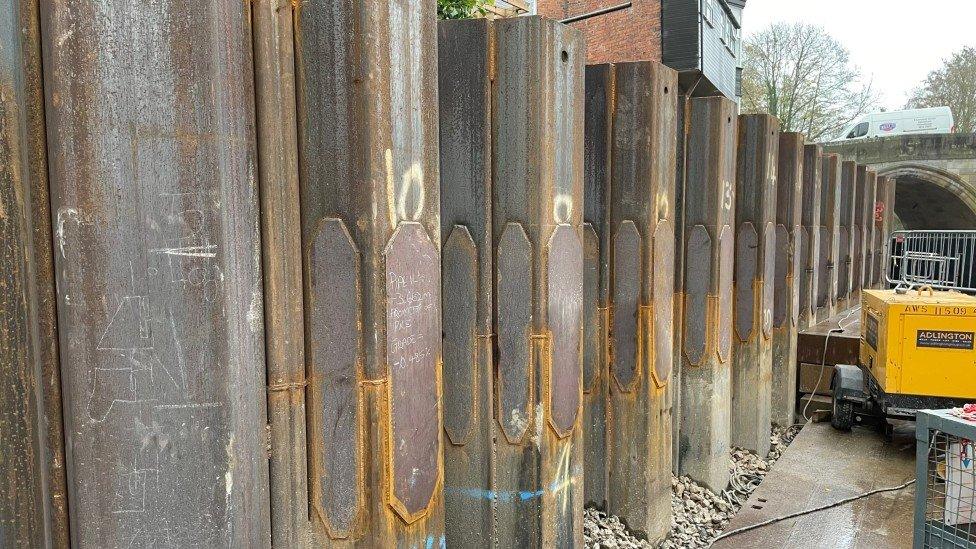Chesterfield flood management project launches at country park
- Published

The project saw new ponds, grasslands and woodland developed
A £275,000 project to reduce flood risks using natural defences has been completed.
The project saw new ponds, grasslands and woodland developed at Grassmoor Country Park in Chesterfield.
The Environment Agency, which helped to fund the project, said it hoped the features would work together to reduce rainfall flowing into the Calow Brook, which leads to the River Rother.
It said it also hoped the scheme would boost wildlife.
The scheme is designed to slow the flow of rainwater heading from land to the brook.
'Shining example'
The agency said it hoped the creation of temporary and semi-permanent ponds, marshy grasslands and wet woodland would act as a natural flood defence while improving and diversifying the habitats for wildlife within the park.
The Environment Agency worked with the Heritage Fund as well as Derbyshire County Council, which owns and maintains the park, and the Friends of Grassmoor and Don Catchment Rivers Trust.
Anthony Downing, catchment coordinator at the agency, said: "This scheme is a shining example of the huge benefits of using nature to manage flood risk - and at the same time creating new habitats for wildlife to thrive and spaces that people can enjoy.
"We are facing a climate emergency and are determined to ensure we work with nature to be resilient and adapt. This project has been a great collaboration effort and certainly something we want to see more of in this area."

The Environment Agency said it hoped the features would work together to reduce rainfall flowing into the Calow Brook
Carolyn Renwick, the county council's cabinet member for infrastructure and environment, said: "This is a great project which has improved the park for the benefit of visitors and wildlife.
"As well as reducing the risk of flooding to local communities, it will improve biodiversity by establishing new habitats which will help absorb carbon from the atmosphere in line with our work to help tackle climate change."

Follow BBC East Midlands on Facebook, external, on Twitter, external, or on Instagram, external. Send your story ideas to eastmidsnews@bbc.co.uk, external.
Related topics
- Published1 December 2022
